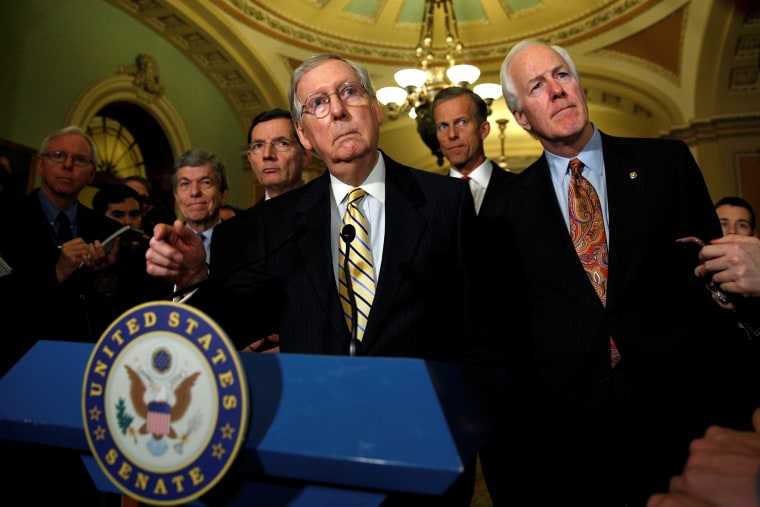When the Congressional Budget Office issued a devastating report on the Senate Republicans' health care plan, it didn't just disappoint GOP leaders, it also surprised them -- because Senate Majority Leader Mitch McConnell (R-Ky.) thought he'd gamed the system.
The idea was straightforward: McConnell knew the CBO's score would review the impact of the health care legislation over the next 10 years. With this in mind, to make the results look better, the Republican blueprint was designed to delay some of its harshest elements until after the first decade. That way, when the initial CBO report went public, we wouldn't see the impact of the bill in years 11, 12, 13, and so on.
We now know that didn't work out especially well. The Republican plan is so regressive, the CBO found it would have brutal effects almost immediately if implemented. Yesterday, however, the non-partisan budget office dropped the other shoe, issuing a report on what would happen in the second decade. The HuffPost's Jonathan Cohn explained:
That big cut to Medicaid that Republicans swear isn't part of their health care legislation would get even bigger in the future, a new government report predicts.In fact, by 2036, the federal government would be spending 35 percent less on Medicaid than it would if current laws remained in place, according to the projection.
The full report is here (pdf). The document didn't specify exactly how many Americans would be expected to lose coverage as part of a 35% spending cut to the Medicaid program, but the effects would obviously be severe.
The CBO's score added, "Under this legislation, after the next decade, states would continue to need to arrive at more efficient methods for delivering services (to the extent feasible) and to decide whether to commit more of their own resources, cut payments to health care providers and health plans, eliminate optional services, restrict eligibility for enrollment, or adopt some combination of those approaches. Over the long term, there would be increasing pressure on more states to use all of those tools to a greater extent."
This probably wasn't what Senate Republicans, still hoping to salvage some kind of agreement by this afternoon, wanted to hear, but it's the truth.
